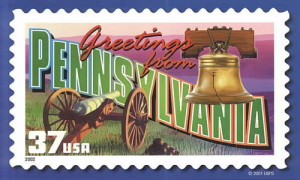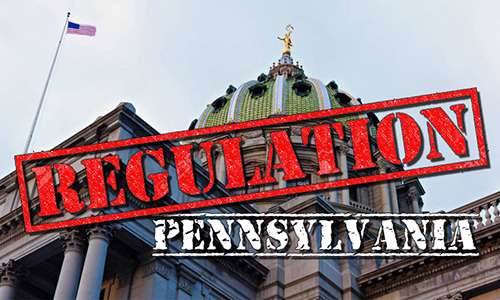Pennsylvania State Senator Says Online Gambling Bill on the Way
By all accounts, the Pennsylvania legislature was a total political shit show last year when it came to coming up with a state budget. Democrats and Republicans, in a microcosm of what goes on in Washington, D.C., seemingly couldn’t agree on anything and hold residents of the state hostage in the process. Among the fallout: the inability for online gambling legislation to get passed, despite plenty of support. State Senator Jay Costa (D – 43rd Dist.) plans to get right back on that horse, though, filing a Senate Co-Sponsorship Memorandum on Monday to announce his intention to introduce a bill to legalize and regulate online gambling “in the near future.”
In the Memorandum Sen. Costa explains that his bill will be based on the ones that did achieve some movement in 2016: HB 1887 and PN 4145, which are overarching gambling expansion bills that include online poker. Legalized online gambling was promised to fill a $100 million hole in the Pennsylvania budget, but obviously that hole still exists.
 While Sen. Costa does not provide every regulatory detail (it is just a memorandum, after all), he does provide some information on what to expect in his bill. The twelve Pennsylvania casinos will be allowed to offer online gambling; by the wording of the memo, it seems like nobody else will be permitted to apply for a license. Those internet gambling licenses would come with a $10 million fee. Like in neighboring New Jersey, the casinos would be permitted to partner with technology providers. A gaming software provider would have to pay a licensing fee of $5 million.
While Sen. Costa does not provide every regulatory detail (it is just a memorandum, after all), he does provide some information on what to expect in his bill. The twelve Pennsylvania casinos will be allowed to offer online gambling; by the wording of the memo, it seems like nobody else will be permitted to apply for a license. Those internet gambling licenses would come with a $10 million fee. Like in neighboring New Jersey, the casinos would be permitted to partner with technology providers. A gaming software provider would have to pay a licensing fee of $5 million.
Under Sen. Costa’s bill internet gaming revenues would be taxed at 25 percent. Three-fifths of that (so 15 percent of revenue) will be put into the state’s Property Tax Relief Fund. The rest will be earmarked for an account with the Commonwealth Financing Authority to be used on economic development projects. Have of the funds in that account will be for projects “in counties contiguous to a county that hosts a casino.”
Unlike in Nevada, which only legalized online poker, this bill would legalize all online casino gaming in Pennsylvania. Players can sign up online or in a casino, but will not be allowed to participate in online gambling while in a brick-and-mortar casino. Sen. Costa says the reason for the ban on internet gaming while on casino property is to “deter tax avoidance by casinos.”
Internet lottery sales and daily fantasy sports would also be legalized with the bill.
The final part of the internet gambling piece is the authorization of “multi-use computing devices” such as tablets for internet gambling at the Philadelphia and Pittsburgh airports. This was an issue that divided lawmakers last year; some were in favor of these sorts of devices at airports all over the state while some thought this was taking gambling expansion too far. Sen. Costa’s bill offers a compromise, as it limits the number of airports and authorizes this type of gaming on a five-year trial basis. The licensing fee will be $2.5 million and revenues will be taxed at 25 percent.
Casino Host Fees
The other major issue Sen. Costa’s bill will tackle is that of casino “host fees.” The Commonwealth’s casinos have been required to pay a portion of their revenues to neighboring municipalities and counties; that number is estimated to be $137 for the 2016-2017 fiscal year. For the nine non-Philadelphia casinos, the host fee is $10 million per year or two percent of slots “gross terminal revenue,” whichever is greater. Because none of the casinos generated enough revenue, they all paid $10 million, as that is higher than what the two percent would be.
The owner of the Mount Airy Casino took umbrage with that, though, suing the Commonwealth. In a nutshell, since each casino had different revenue figure, the $10 million essentially meant each casino was charged with a different tax rate, something Mount Airy’s owner said was an unconstitutional tax. The state’s Supreme Court agreed in late September and gave the legislature 120 days to come up with a fix.
Sen. Costa says that “some municipalities have entered into agreements with their casinos to ensure the funding continues,” but new legislation still has to be enacted, per the Supreme Court. As such, his plan is to require casinos to pay a slot machine license renewal fee of 20 percent of the initial slot machine license cost. What was that cost? $50 million. So yes, that means that the casinos will still pay the $10 million host fee. It just won’t be considered a tax anymore and therefore can’t be an “unconstitutional tax.”
Yes, I eye-rolled, too.



















COMMENTS